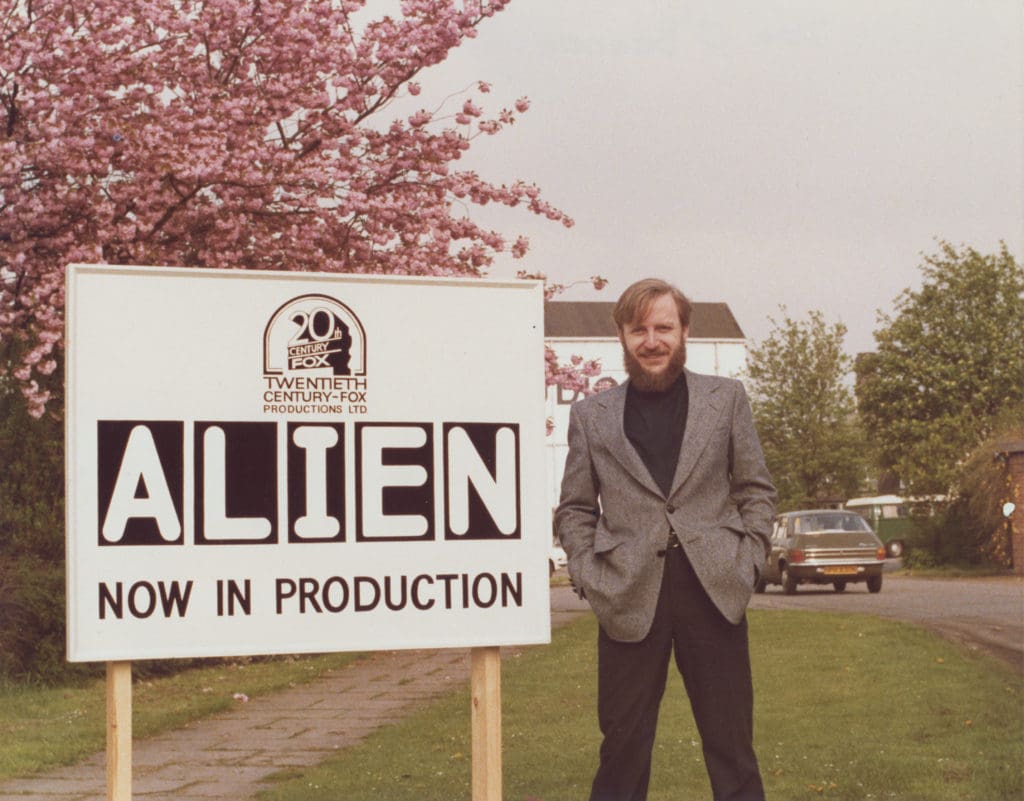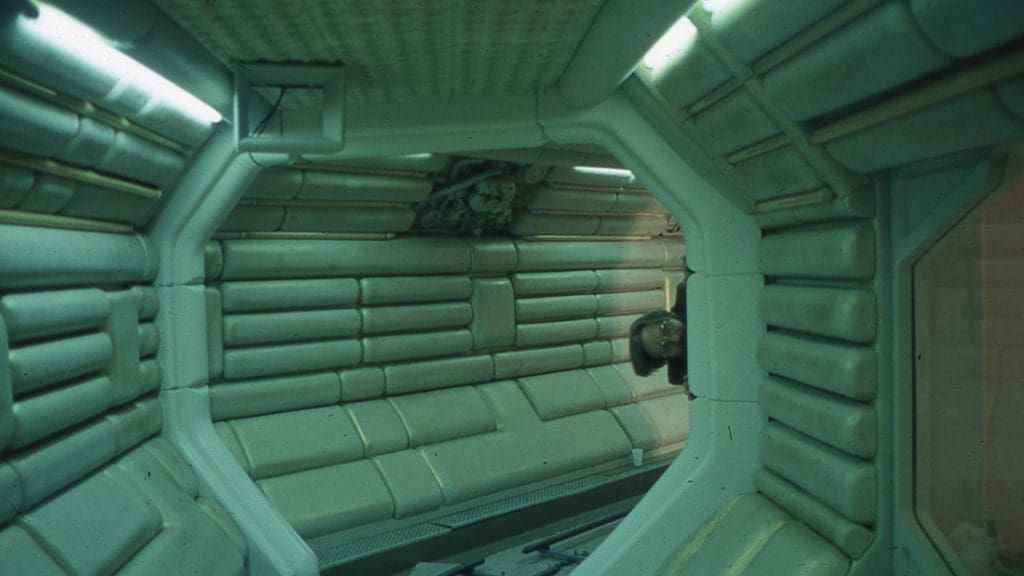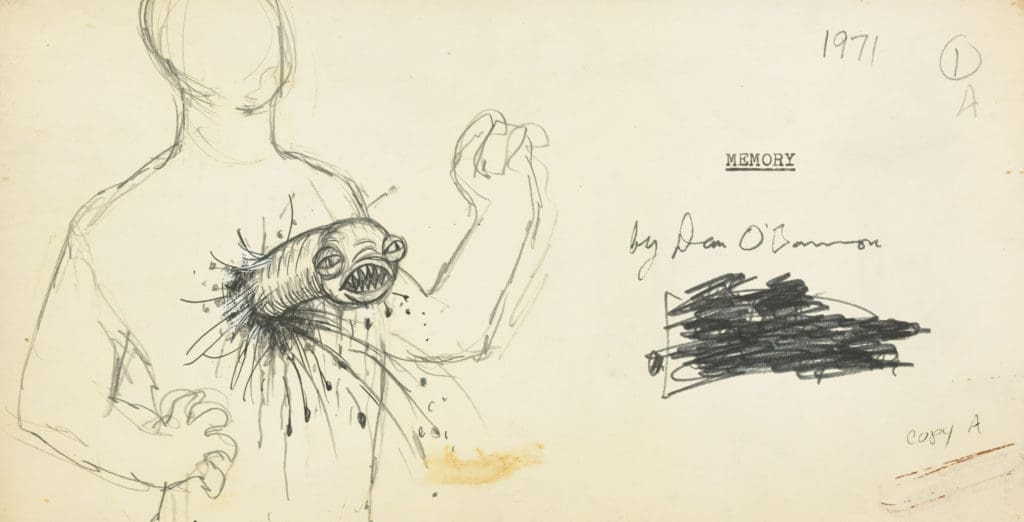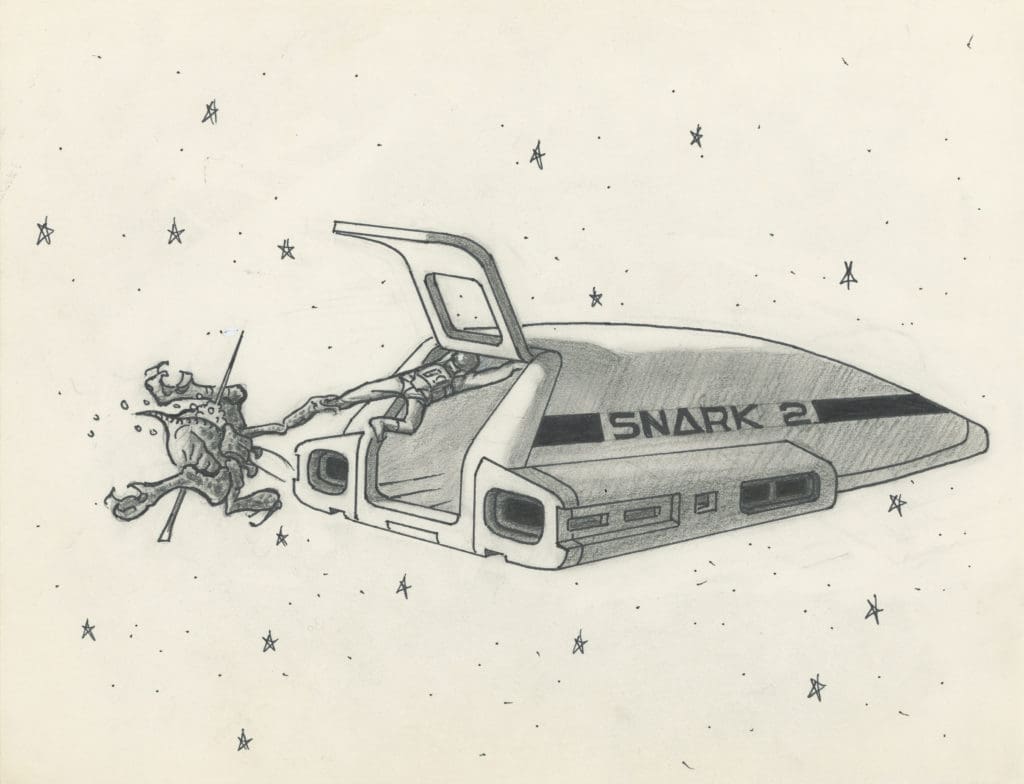
While at Fantastic Fest, we caught one of the hottest documentaries of the year for film fans, Memory: The Origins of Alien. Directed by Alexandre O. Philippe, who just two years ago brought audiences 78/52, the definitive documentary on Psycho and its cultural impact, Memory digs past the surface of a Hollywood classic.
We sat down with Philippe to discuss some of the more revealing aspects of Ridley Scott’s groundbreaking horror film including its relationship with Dune both as a film and in relation to its own recent documentary, and why Philippe has made two films about movies that aren’t even his favorites from their respective directors.
Fair warning, we’re just gonna talk about Alien 3.
Great.
Just a big Fincher fan. So what was your entry point into Alien?
My personal entry point was actually the poster. I remember as a kid being obsessed with it. I had a friend who had the one-sheet in his room and we would go there quite often. The the tagline obviously [is], “In space, no one can hear you scream.” It just makes your mind go places where you don’t want to go. It […] makes you want to see it really, really badly, but also creates this sense of dread — which of course, the movie itself captures so beautifully.
So a result of that, I actually waited a few years to watch it on VHS for the first time. And, boy, even then, even on VHS, it didn’t disappoint at all. It’s such a spectacular movie.

And because Alien is from Ridley Scott, there’s some debate if Alien is more essential than Blade Runner?
Blade Runner is one of the most important movies for me of my life. There’s no question. I would put it probably number two after Vertigo.
So even above Alien? What captures your mind to do a documentary on Alien compared to say Blade Runner?
Nobody said I will not make a film about Blade Runner later on, right? I know I’ll get there. It’s almost like a real continuation from the shower scene in Psycho. I very quickly became interested in those moments in cinema that become cultural moments. It’s almost like this massive meteorite hits the theater and then we’re all picking up the pieces afterward and trying to figure out what just happened to us.
So, the initial impulse behind Memory was very specifically to examine the chest-burster and its significance. But, I also very quickly realized that that to do that with the chest-burster, you have to have a real look at Alien on the level of myth. It is a movie that has deep, mythic resonance. It resonates with our collective unconscious in some very profound ways because it’s not a movie that was supposed to be a success when it came out in 1979. Yet it was and so my arguments is that Alien is not the movie that we wanted to see in 1979, it is the movie that we needed to see back then and we still need to see now.

Conversely, mentioned in the movie are the interviews about Dune. That was a movie that was supposed to be huge and it wasn’t. So where do you start to see the parallels and the involvement that kind of relates the two?
There’s actually a bit of poetic connection between them. Obviously between Dune and Alien, but also between Jodorowsky’s Dune (the documentary) and Memory in the sense that it was Frank Partridge, the director of Jodorowsky’s Dune who put me in touch with Dan O’Bannon [the writer of Alien, who was once attached to Dune]. Without him, I don’t think we would have the film in the way that we have it now, which is kind of funny.
I think that Dune, in a way, had to collapse for him to be what it is now. I think Dan O’Bannon would have been propelled in a completely different path [had he worked on the film]. In fact, I think if Dune had actually been made, it would have become the standard for better or worse. It would have been amazing, a completely mind-blowing, crazy thing. I think it would have taken the wind out of the sails of Star Wars. Think about what kind of a pop culture universe we’d be living in now had that happened. I think everything would have been completely different. So is it a coincidence? Is it fate? It’s certainly fun to think about.

As someone who grew up in the Midwest, hearing a segment talking about the Midwest’s influences was great. That’s something I’m not sure I fully agree with, but it’s still an interesting talking point. Where did those deeper influences start peering in for you?
I think anytime you delve into a movie like Alien, which is one of those rare great movies like Citizen Kane, 2001, Vertigo, they’re completely accessible on a first watch. You can look at Alien and say it’s a haunted house movie in space, which it is. But, it is also so steeped in ideas that go back to our ancient past and into deep psychological ideas. Those are movies that you can keep peeling the layers and you will never ever get to the bottom of.
What did I learn? What did I not learn? That’s the fun of making a film like this. It’s an endless journey of discovery.
The whole connection to Greek mythology, Egyptian mythology, all of those are not concrete connections. There are poetic connections that I think are relevant in a certain way because there’s a mirror effect that happens to be Furies (Greek goddesses of vengeance) and Xenomorphs via the “Triptychs” by Francis Bacon, the three studies from figures at the base of a crucifixion. Even though a lot of that stuff is not intentional, when great artists work with other great artists — and in this amazing collaboration between O’Bannon, [H.R.] Geiger [whose art inspired the xenomorph designs], and Scott, — [they] start connecting ideas. Even if those ideas are not conscious, they’re still relevant.
I think we as audiences connect with that. We were not there in ancient Greece. We didn’t physically watch the first “Oresteia” by Aeschylus but, some of our ancestors did and it’s in our blood. It’s in our DNA. That stuff gets passed on. And as Diana Benton says, “Dan O’Bannon is out of time,” in a way. This idea that images and ideas secure throughout human history is a beautiful idea. I think it’s part of what I was trying it express in Memory — this idea that the Furies in a way came back in 1979 in the form of the chest-burster in the form of the Xenomorph to express ideas that connect to our ancient past.

